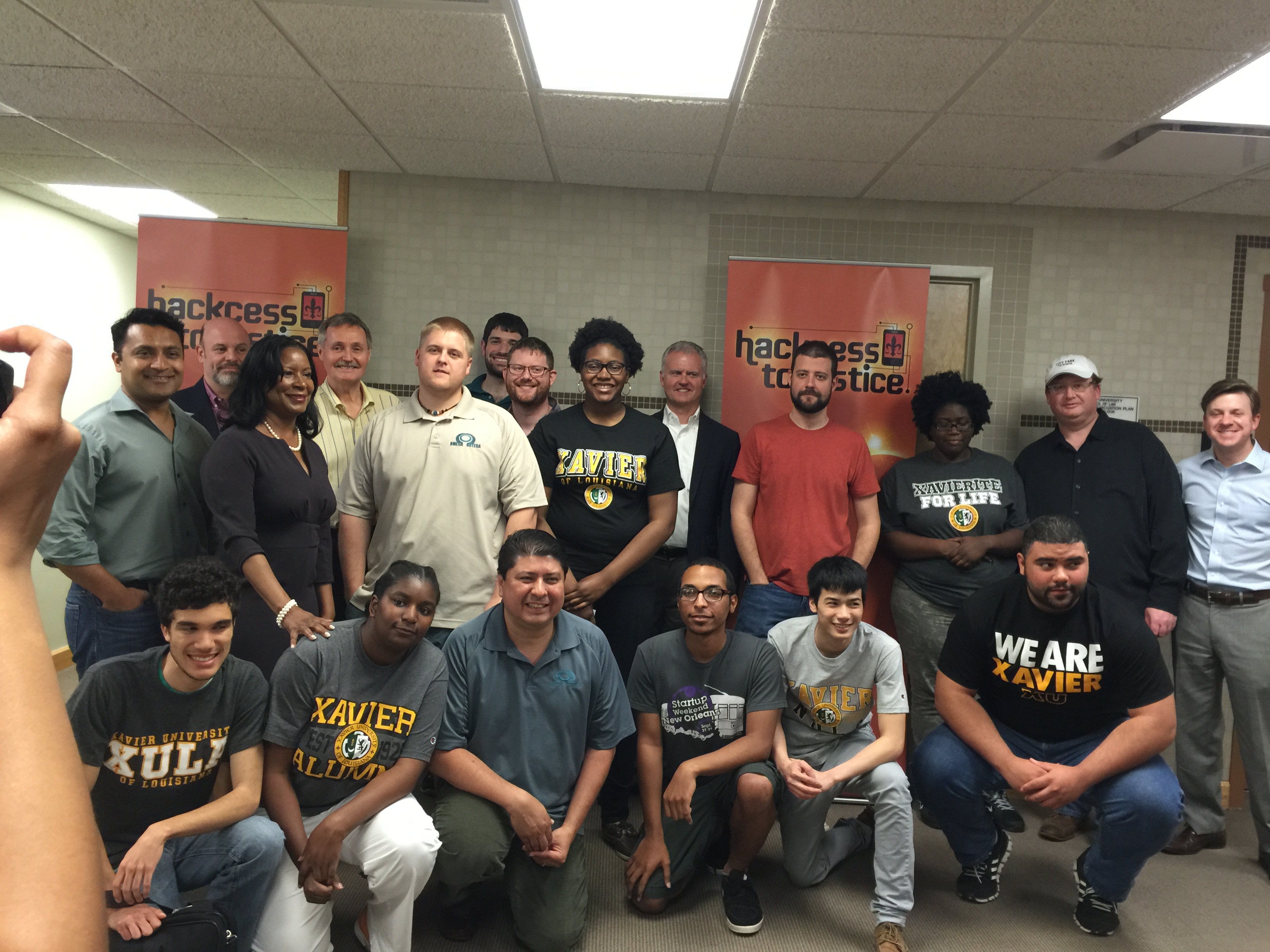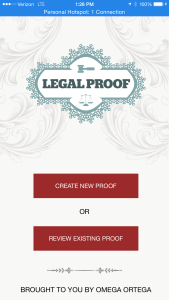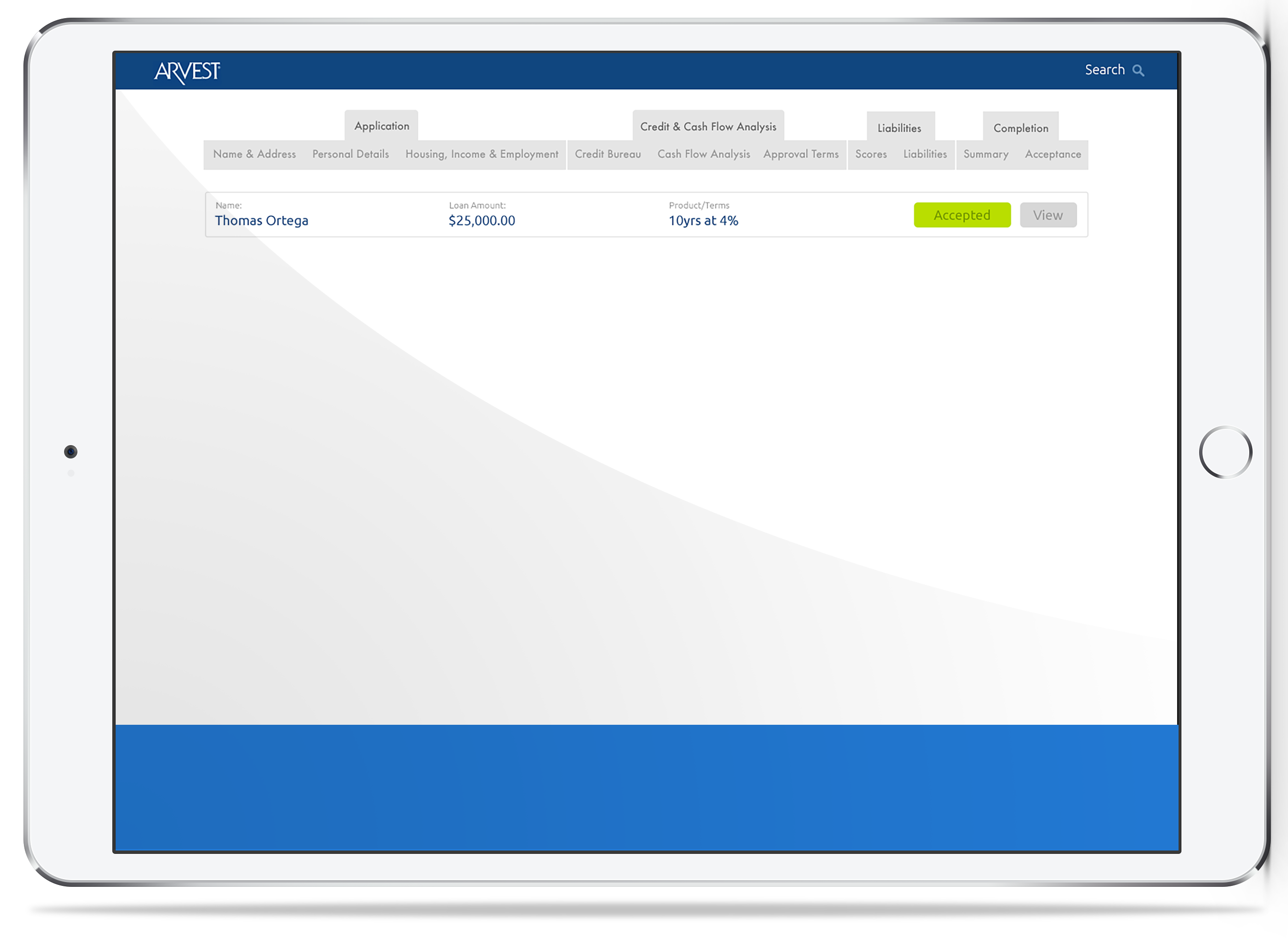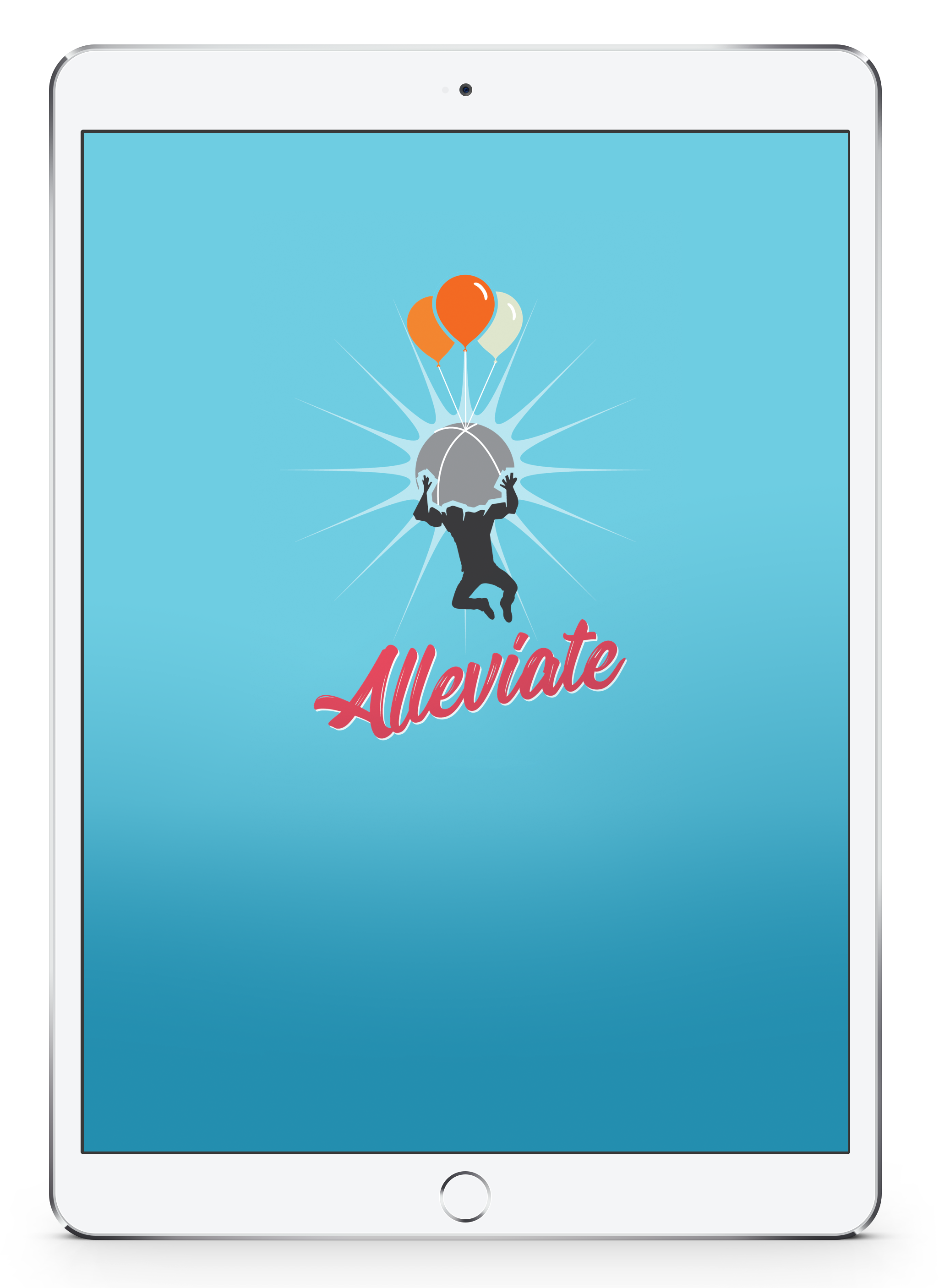
The Hackers and Lawyers
The Hackcess to Justice hackathon took place in New Orleans, LA on March 21st and 22nd. Omega Ortega was lucky enough to be a part of this great event, along with the other teams, organizers, judges, and lawyers (many of the group are pictured above). Rarely does one walk away from an event realizing that life has changed and will never be the same, but this event did just that. Now, if you recall, we’ve won hackathons for other verticals like Retail, Healthcare, and Finance. The difference here is that this is not a corporate experiment; This is an association realizing something needs to change now.
The American Bar Association Journal and the Louisiana State Bar helped organize and sponsor this event. The event was to help grant greater access to justice via technology. We arrived having no idea what that meant. Our one idea we brought was focused on criminal law, when the hackathon turned out to be focused on civil law. Therefore, during the event kickoff Saturday morning, we listened intently to the inspiring kickoff speakers, who pressed upon us the importance of our task at hand. We then played an active role in the discussions that followed between the lawyers and judge that serve the fine people of Louisiana. Through all this, it became very clear where we could excel: creating a mobile app to help people gather potential evidence for their cases.

Legal Proof App
A little more than 24 hours later, we were presenting our app, Legal Proof. On the site, you can see in the video pretty much the state of the app as we demo’d it. The technology isn’t revolutionary, but that’s the point. This is more of an evolutionary move. Mobile devices are ubiquitous and powerful in their own right. It just takes a little point in the right direction and we, as developers, can make a huge impact in the lives of others.
The system is well thought out to be self sustaining as well. There’s no centralized backend, no notifications, and no content management system. Why not? Because all those things cost money to support and upkeep. This app needs to be able to serve millions of people and never fail, never be down and never cost a penny because who would/should pay the bills? If the Legal Aid Services teams can barely afford to pay their lawyers, there’s no way we should impose backend and support costs on to them. We, Omega Ortega, will publish the app because we will update it as needed to stay current on OS builds, etc. because someone has to publish new builds.
We are very excited about our participation. The judges and lawyers seem to think our mobile app can help millions, which would be great. However, even if it just helps one person, all the time and effort would be worth it. It has really opened our eyes about how we can leverage tech to help others.
For more coverage of the event and to read the other winning ideas, checkout the following links from IDG, ABA Journal, Idea Village, and Silicon Bayou News.

